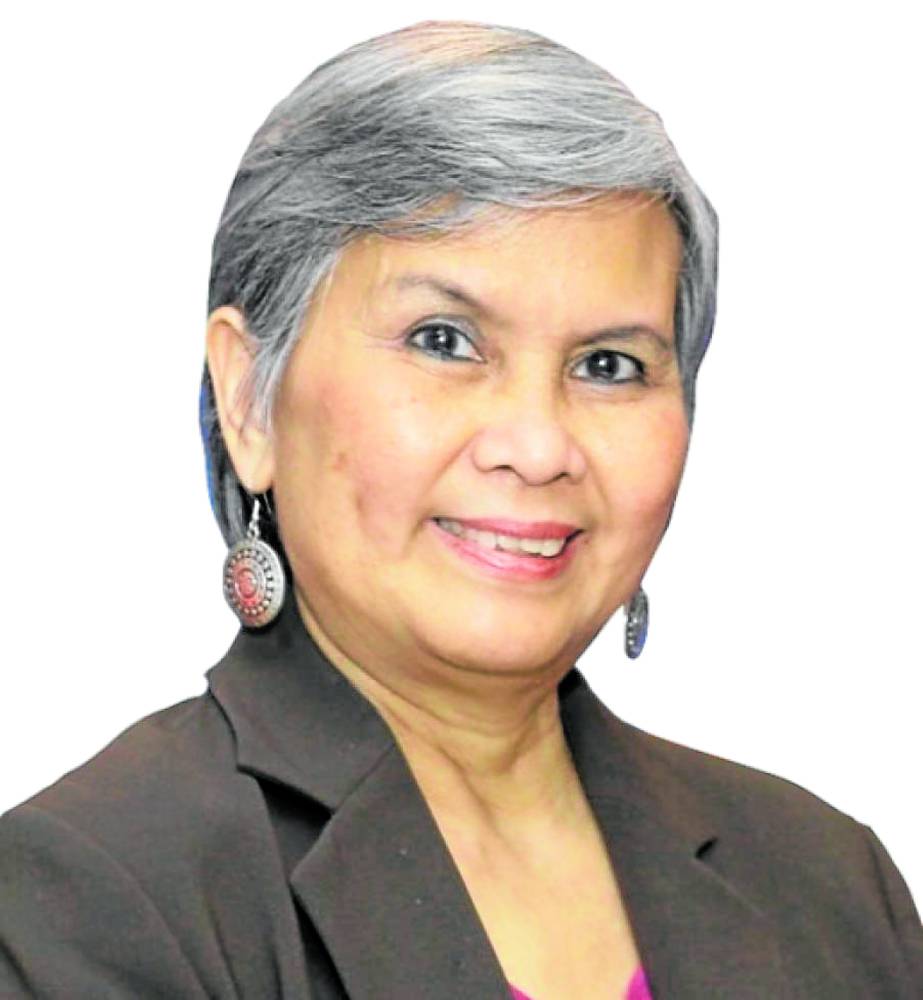Fighting for nature and the future

Gloria Estenzo Ramos
CEBU CITY — She knew that an advocacy for the environment won’t be a walk in the park. But the desire of Cebuana lawyer Gloria Estenzo Ramos to protect nature and the people was stronger than the obstacles that she faced.
Ramos, 70, the vice president of Oceana Philippines International, the largest global ocean conservation and advocacy organization, has won important battles. With support from allies in government, fisherfolk communities and other organizations, Oceana has managed to help draw up measures and policies to reduce illegal commercial fishing, prevent habitat-destroying fishing methods, stop reclamation projects, strengthen the protection of sardines, corals and mangroves, and fight plastic pollution.The group also helps ensure that small fishers can feed their families.
“With over 7,600 islands in the country, our ocean means life itself for most Filipinos. Our history, culture and food preference are centered on the beauty and bounties of our ocean,” Ramos said.
READ: PDI fetes achievers, advocates in 2024 ‘Women of Power’
“We are known for our marine wealth, hosting numerous marine endemic species, and are one of the top 12 fish-producing countries in the world. But our ocean’s richness has not cascaded into our coastal communities. Our fisherfolk and their families remain among the poorest, despite laws that give them preferential access to fishing grounds,” she added.
Article continues after this advertisementNature as playground
Ramos grew up with nature as her playground, in an era where the values of stewardship and caring for nature were part of the daily existence of communities.
Article continues after this advertisementHer family loved going to the beach, swimming, hiking, and having picnics while enjoying their closeness to nature.
“Our house (in Cebu) was surrounded with fruit trees and flowers. We walked to school and we had gardening where we were responsible for the patch of vegetables that we grew. My parents were the biggest influence in my life in nurturing these values as they practiced simplicity and frugality. My Mama Coring was the original recycling queen,” she said.
Ramos grew up in hand-me-down clothes and brought bottles to the store for refill without using plastics. Carts picked up recyclables from their home as biodegradables were composted.
These experiences are what have fueled her work with Oceana. In the Philippines, Oceana campaigns with and for small fishers who depend on healthy and abundant oceans.
READ: Conserving the high seas
‘Karagathon’
Together with allies inside and outside the government, Oceana has called for the implementation of the vessel monitoring technology by the Department of Agriculture’s Bureau of Fisheries and Aquatic Resources.
When President Marcos, in June 2023, directed the full implementation of the vessel tracking requirement that not all commercial fishing vessels have complied with, Oceana hosted a software app contest called “Karagathon” to find technology-based solutions to illegal fishing.
Ramos said they had been studying satellite images using technology since 2019 and detected pervasive illegal commercial fishing in municipal waters.
Ramos was a Southeast Asia representative to the International Union for Conservation of Nature Academy of Environmental Law Governing Board from 2014 to 2015. In 2010, she cofounded the Philippine Earth Justice Center, a nonprofit organization that takes on environmental cases and uses accountability tools to promote good governance.
One of these cases was the offshore oil-drilling project in the largest marine protected area in the country, the Tañon Strait Protected Seascape in the Visayas, which was declared unconstitutional by the Supreme Court in 2015.
Tañon Strait’s rich marine biodiversity hosts some 70 to 100 species of fish, 20 species of crustaceans, 26 species of mangroves and 18,830 hectares of coral reefs.
In 1998, Proclamation No. 1234 declared the Tañon Strait, situated between the islands of Cebu and Negros, a protected area pursuant to Republic Act No. 7586, or the National Integrated Protection Areas System Act of 1992. Its management board was instituted in 2015, or 17 years later.
Livable future
Ramos has also been involved in filing cases that eventually stopped the indiscriminate dumping of coal ash, violations of the solid waste management law, and proposed reclamation projects in Cebu.
She said reclamation projects, especially those that do not meet strict legal or procedural requirements, could not be allowed due to the irreversible damage these would cause on the environment and the livelihood of fisherfolk.
A University of the Philippines graduate, Ramos is also an advocate for women and children’s rights and good governance, having served as a board member of a nongovernment organization protecting women against violence.
But she shifted to environmental advocacy over a decade ago after environmental lawyer Antonio Oposa Jr. appointed her as the Visayas deputy of the then newly established National Environmental Action Team of the Integrated Bar of the Philippines.
“I was privileged to have Tony (Oposa) as my mentor in advocacy. There was no turning back as I found my passion in protecting our home planet and improving the well-being of our people,” she said.
Ramos wrote a column about the environment and governance with the now defunct Cebu Daily News for 13 years, and was awarded Columnist of the Year in 2015 and 2017 by the Globe Media Awards for Excellence. She also cohosted an environment radio program at dyRC and the “Partners in Law” show aired at the Cebu Catholic Television Network.She and husband, Dante, also her partner in environmental advocacy, count themselves honored to be called parents of three lawyers and one marine scientist.
“Protecting our planet and/or mitigating the impacts of climate change is a shared responsibility of everyone, especially by the government as it has the resources to implement the mandates,” Ramos said.
“We cannot renege on our commitment to leave a future which is livable and sustainable for the present and future generations. Right now, that future is under severe threat,” she added. INQ